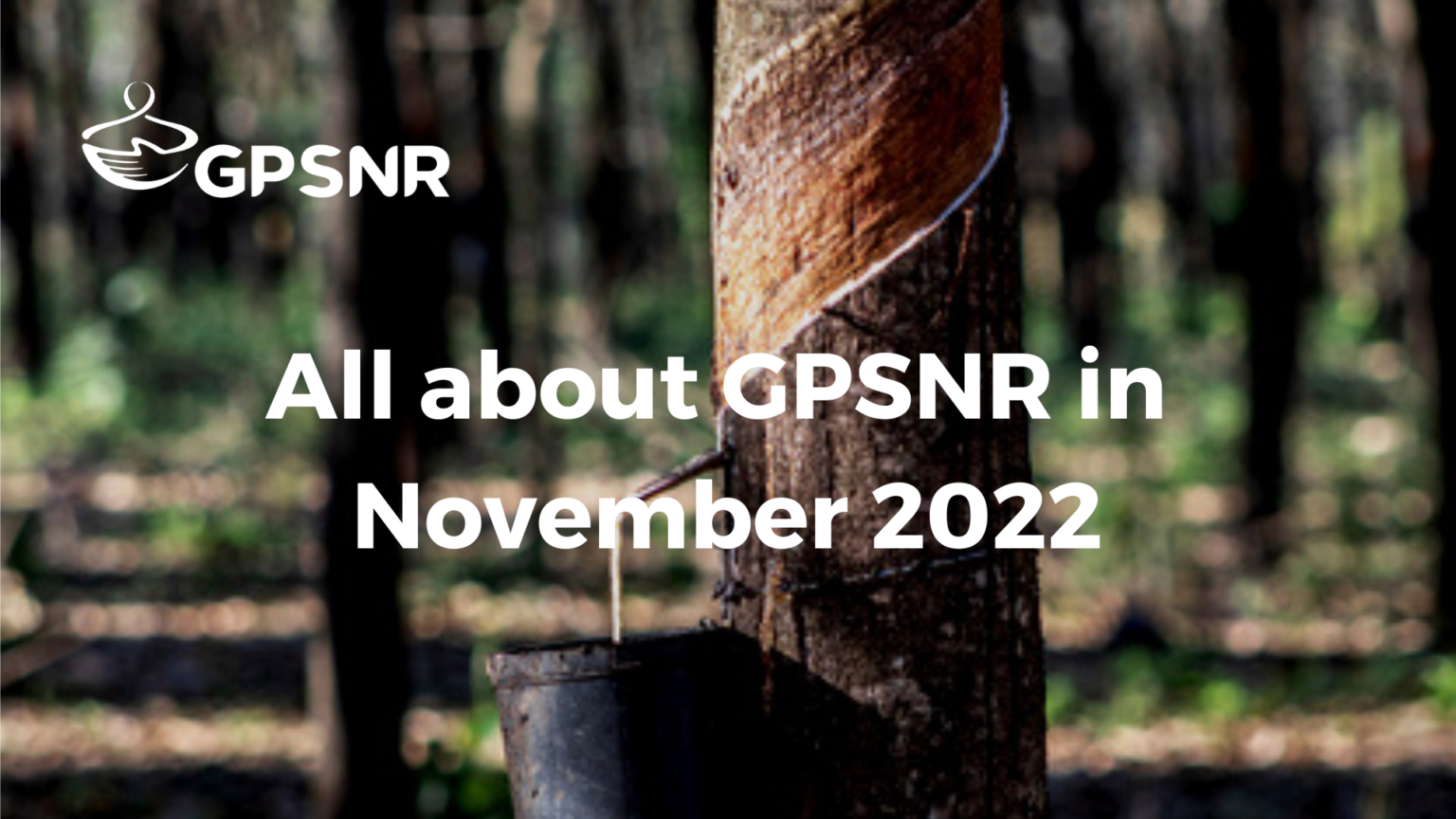Strategy and Objectives Working Group
The risk subgroup, which sits under the umbrella of this working group, has studied the various definitions of polygons in the EU Deforestation Regulation through an extensive survey conducted for GPSNR PPT members.
The assurance model subgroup continues to work on the KPIs set during the last in-person meeting as they are to be finalised at the end of the year and presented during the next in-person and hybrid meetings in January 2023.
Smallholder Representation Working Group
After completing two rounds of pilot agroforestry workshops for smallholder members in Indonesia, and Cambodia, the working group is working on concluding how GPSNR should approach agroforestry capacity building in the long term. This work stream aims to integrate priorities of smallholders with developing long-term income diversification strategies through the Capacity Building Working Group.
They are also busy holding focus group discussions towards the smallholder policy equivalent and evaluating proposals received for the GPSNR-HCSA Smallholder Toolkit Field Trials.
Policy Toolbox Working Group
The group is working on finalizing the TORs for the Year 1 Reporting Review to be conducted in the first quarter of next year. They are also assessing if any changes to the reporting framework and its details (i.e. process, extensions, questions) are needed based on the Year 1 Reporting Review results.
Capacity Building Working Group
The group is currently evaluating proposals to appoint a software developer for the second phase of the GPSNR Knowledge Sharing Platform. They have kicked off the Disease Fighting Project with SNV-IRRI in Indonesia, after having recently completed the first milestone of the SNV-Proforest GAP coaching in the country. They continue to seek members’ funding for capacity building projects in Indonesia (second stream of disease fighting) and Cote d’Ivoire (training centres). To know more, you can find the project details here.
Shared Responsibility Working Group
The group has completed 40% progress on the agreed deliverable for each pillar, and is continuing to work towards completion ahead of the meetings in January. The WG is also working to align with the Assurance Model Task Force to advance the Shared Responsibility agenda.






